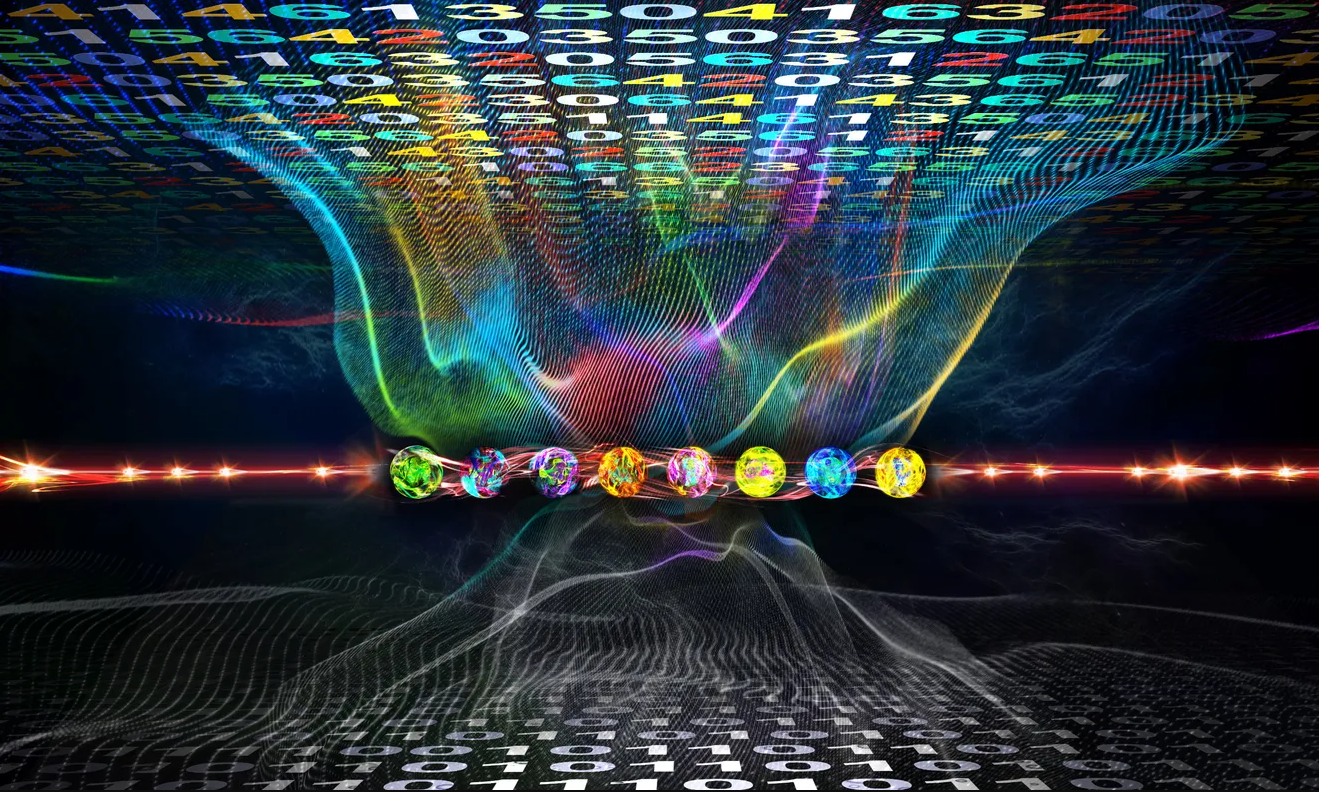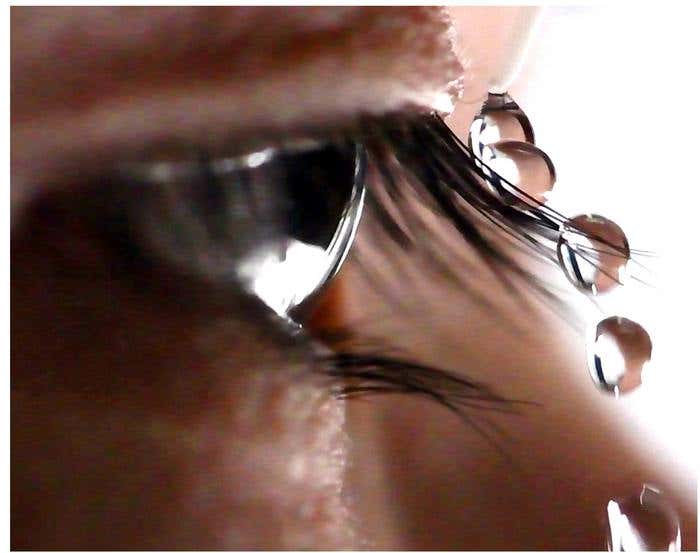Novel quantum computer works with more than ones and zeroes
The Innsbruck quantum computer stores information in individual trapped calcium atoms, each of which has eight states.

[Aug 2, 2022: Christian Flatz, University of Innsbruck]
The Innsbruck quantum computer stores information in individual trapped calcium atoms, each of which has eight states, of which the scientists have used up to seven for computing. (Credit: Uni Innsbruck/Harald Ritsch)
For decades computers have been synonymous with binary information – zeros and ones. Now a team at the University of Innsbruck, Austria, realized a quantum computer that breaks out of this paradigm and unlocks additional computational resources, hidden in almost all of today’s quantum devices.
We all learn from early on that computers work with zeros and ones, also known as binary information. This approach has been so successful that computers now power everything from coffee machines to self-driving cars and it is hard to imagine a life without them.
Building on this success, today’s quantum computers are also designed with binary information processing in mind. “The building blocks of quantum computers, however, are more than just zeros and ones”, explains Martin Ringbauer, an experimental physicist from Innsbruck, Austria. “Restricting them to binary systems prevents these devices from living up to their true potential.”
The team led by Thomas Monz at the Department of Experimental Physics at the University of Innsbruck, now succeeded in developing a quantum computer that can perform arbitrary calculations with so-called quantum digits (qudits), thereby unlocking more computational power with fewer quantum particles.
Related Stories
Quantum systems are different
Although storing information in zeros and ones is not the most efficient way of doing calculations, it is the simplest way. Simple often also means reliable and robust to errors and so binary information has become the unchallenged standard for classical computers.
In the quantum world, the situation is quite different. In the Innsbruck quantum computer, for example, information is stored in individual trapped Calcium atoms. Each of these atoms naturally has eight different states, of which typically only two are used to store information. Indeed, almost all existing quantum computers have access to more quantum states than they use for computation.
A natural approach for hardware and software
The physicists from Innsbruck now developed a quantum computer that can make use of the full potential of these atoms, by computing with qudits. Contrary to the classical case, using more states does not make the computer less reliable. “Quantum systems naturally have more than just two states and we showed that we can control them all equally well”, says Thomas Monz.
Quantum physicist Martin Ringbauer in his lab. (Credit: Uni Innsbruck)
On the flipside, many of the tasks that need quantum computers, such as problems in physics, chemistry, or material science, are also naturally expressed in the qudit language. Rewriting them for qubits can often make them too complicated for today’s quantum computers.
“Working with more than zeros and ones is very natural, not only for the quantum computer but also for its applications, allowing us to unlock the true potential of quantum systems”, explains Martin Ringbauer.
For more science and technology news stories check out our New Innovations section at The Brighter Side of News.
Note: Materials provided above by University of Innsbruck. Content may be edited for style and length.
Like these kind of feel good stories? Get the Brighter Side of News' newsletter.
Joshua Shavit
Science & Technology Writer | AI and Robotics Reporter
Joshua Shavit is a Los Angeles-based science and technology writer with a passion for exploring the breakthroughs shaping the future. As a contributor to The Brighter Side of News, he focuses on positive and transformative advancements in AI, technology, physics, engineering, robotics and space science. Joshua is currently working towards a Bachelor of Science in Business Administration at the University of California, Berkeley. He combines his academic background with a talent for storytelling, making complex scientific discoveries engaging and accessible. His work highlights the innovators behind the ideas, bringing readers closer to the people driving progress.



